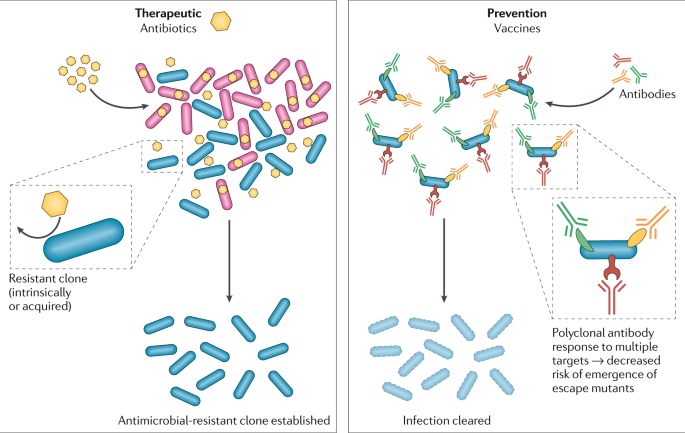
WHO: A new report by the World Health Organization (WHO) finds that vaccines against 24 pathogens could reduce the number of antibiotics needed by 22% or 2.5 billion defined daily doses globally every year, supporting worldwide efforts to address antimicrobial resistance (AMR). While some of these vaccines are already available but underused, others would need to be developed and brought to the market as soon as possible. AMR is driven largely by the misuse and overuse of antimicrobials, yet, at the same time, many people around the world do not have access to essential antimicrobials. Each year, nearly 5 million deaths are associated with AMR globally.
Vaccines are an essential part of the response to reduce AMR as they prevent infections, reduce the use and overuse of antimicrobials, and slow the emergence and spread of drug-resistant pathogens.The new report expands on a WHO study published in BMJ Global Health last year. It estimates that vaccines already in use against pneumococcus pneumonia, Haemophilus influenzae type B (Hib, a bacteria causing pneumonia and meningitis) and typhoid could avert up to 106 000 of the deaths associated with AMR each year. An additional 543 000 deaths associated with AMR could be averted annually when new vaccines for tuberculosis (TB) and Klebsiella pneumoniae, are developed and rolled out globally. While new TB vaccines are in clinical trials, one against Klebsiella pneumoniae is in early stage of development. Vaccinated people have fewer infections and are protected against potential complications from secondary infections that may need antimicrobial medicines or require admission to hospital. The report analyzed the impact of already licensed vaccines as well as vaccines in various stages of development.
Globally, the hospital costs of treating resistant pathogens evaluated in the report are estimated at US$ 730 billion each year. If vaccines could be rolled out against all the evaluated pathogens, they could save a third of the hospital costs associated with AMR. A comprehensive, people-centred approach applied across health systems is needed to prevent, diagnose and treat infections. This approach recognizes vaccination as core to preventing AMR and especially impactful when combined with other interventions. At the 79th United Nations General Assembly High-Level Meeting on AMR on 26 September, world leaders approved a political declaration committing to a clear set of targets and actions, including reducing the estimated 4.95 million human deaths associated with bacterial AMR annually by 10% by 2030. The declaration emphasizes key aspects, including the importance of access to vaccines, medicines, treatments and diagnostics, while calling for incentives and financing mechanisms to drive multisectoral health research, innovation and development in addressing AMR.

